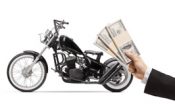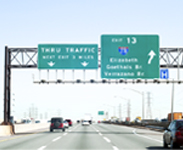Motorcycle Helmet Laws and Rules in New Jersey
The State of New Jersey has motorcycle helmet laws in place to help protect riders from serious injury if they are involved in an accident–just as insurance on motorcycles provides financial protection for the rider in the case of an accident or other covered loss. For some riders, it may seem to be controversial that the government should require helmets and have rules around them. However, statistics show that you are 28 times more likely than passenger car occupants to die in a motorcycle accident than in a car accident and helmets do save lives. Riders without helmets are three times more likely to die from head injuries than riders wearing helmets at the time of the crash. Helmet skeptics should keep in mind that most crashes happen on short trips that are less than five miles long, shortly after departure, and even low-speed crashes can be fatal. For riders traveling at less than 30 miles per hour, helmets can cut the number and severity of head injuries by half.
What Does New Jersey Consider A Motorcycle?
There are many different types of motorcycles on the roadways these days. According to NJ law, the classification of motorcycles includes motorcycles, autocycles, motor bikes, bicycles with an attached motor, and all other motor-operated vehicles of bicycle or tricycle (trike) type, but not motorized bicycles. In New Jersey, a motorized bicycle, or MOPED, is defined by law as a pedal bicycle with a helper motor that has a maximum piston displacement of less than 50 cubic centimeters, or no more than 1.5 brake horsepower, and is capable of a maximum speed of no more than 25 miles per hour on a flat surface. All such motorcycles and MOPEDs need to be licensed, registered, and insured.
Do You Have to Wear a Motorcycle Helmet in New Jersey?
All NJ motorcyclists are required to wear a helmet and so are their passengers. Motorcycle operators who carry passengers who do not wear helmets can be fined. There are several different types of helmets available, but the helmet must be approved by the United States Department of Transportation (DOT) to be compliant with the law. Look for the DOT symbol on the outside back of the helmet to confirm that it is approved and then look for a label on the inside with the manufacturer’s name, month and year of manufacture, construction materials, model, size, and other important information. A helmet being DOT-approved simply means that it went through rigorous testing to make certain that it is safe and will protect your head in a crash. Approved helmets allow a rider to see as far to the sides as necessary and have a chin or neck strap to keep it in place. They are also reflectorized on both sides so drivers can see you better in the dark.
NJ motorcyclists are required to wear approved goggles or a face shield when operating a motorcycle, unless the motorcycle is equipped with a windscreen. Approved helmets come in three types: full-face, three-quarter, and one-half. A full-face helmet protects your eyes and your face and offers the most protection. A three-quarter helmet is an open-faced helmet that you may wear with a bubble visor, face shield or goggles for eye protection. If you use a three-quarter helmet, the bottom of your face remains exposed even with the visor or shield flipped down. Aone-half helmet provides the lowest level of protection and requires the use of sunglasses or goggles for eye protection.
Does NJ Have a Motorcycle Helmet Law?
New Jersey’s helmet law was enacted in 1967 for every type of motorcycle, as defined by New Jersey law. There are no exemptions in place for age, experience, or for taking an approved safety course, and the law applies to both motorcycle riders and passengers.
This article has been provided for informational purposes only and does not constitute as legal advice. This article is based on the most reliable information available on the date of publication. Motorcycle helmet laws are subject to change. For legal guidance and to ensure you have the most up-to-date information, please consult qualified legal counsel or your state’s Department of Motor Vehicles.





